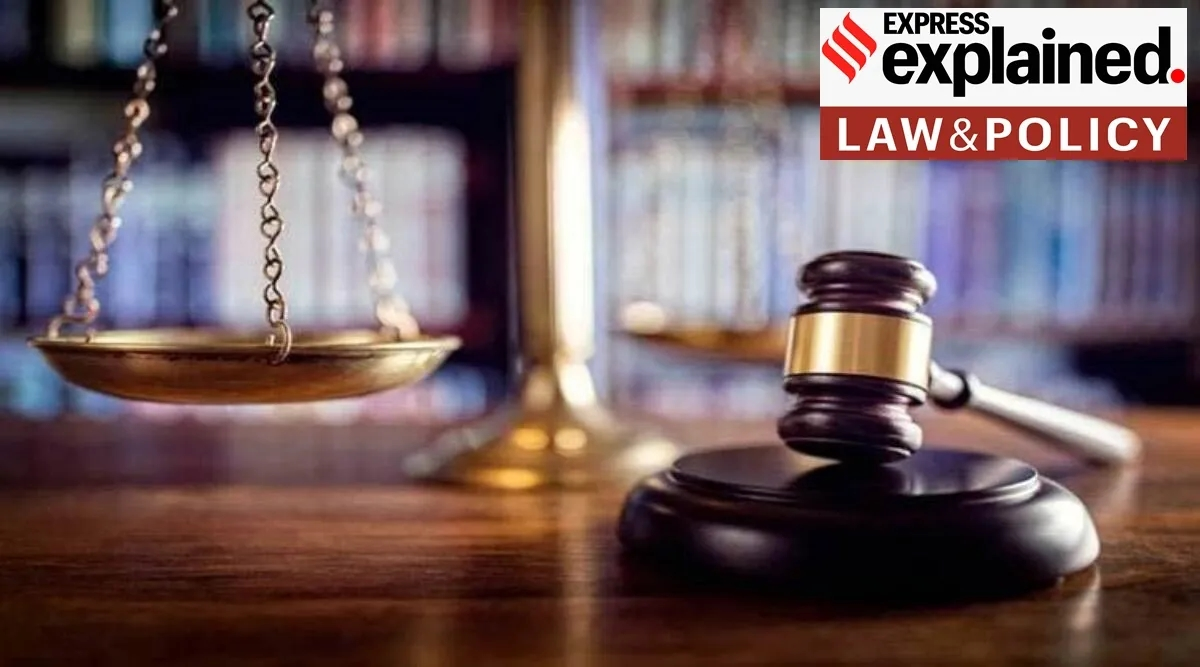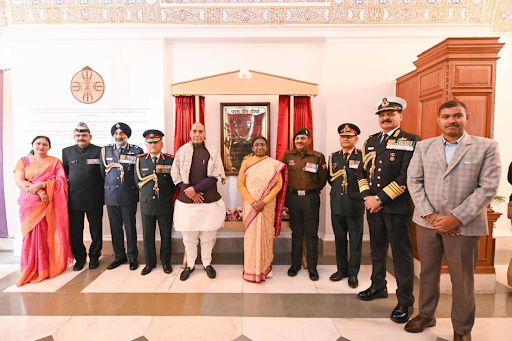Description

Copyright infringement not intended
Picture Courtesy: https://indianexpress.com/article/explained/explained-law/article-361-immunity-shield-until-governor-in-office-9304516/
Context: Article 361 grants immunity to Presidents, Governors from prosecution during office.
Why in the News?
- A female staff at Raj Bhavan accused the West Bengal Governor of molestation during two separate meetings. The Governor denied the allegations, calling them an "engineered narrative" to malign him for political gain.
About Article 361
- Article 361 largely addresses the immunity granted to the president and governors of states.
- It states that the president and governors will not be held accountable to any court for the exercise and performance of the powers and duties of their office, or for any act done or alleged to be done in the exercise and performance of such powers and responsibilities.
- This article aims to protect the constitutional heads of the nation and states from legal harassment that may interfere with the performance of their official duties.
|
Article 361 is an important provision within Part XIX of the Constitution of India, it serves as an exception to certain fundamental rights, including Article 14 (Right to Equality), recognizing the unique roles and responsibilities of the President and Governors in the governance structure.
|
Key Provisions of Article 361
- Immunity from Court Proceedings: The President or Governor is not answerable to any court for the exercise of the powers and duties of their office. This means they cannot be summoned or questioned in court for actions taken in their official capacity.
- Immunity from Criminal Proceedings: No criminal proceedings can be conducted against the President or Governor during their term of office. They are protected from facing criminal charges related to their official duties.
- Protection from Arrest or Imprisonment: No arrest or imprisonment can be made against the President or Governor during their tenure. This ensures that they can perform their duties without fear of legal action.
- Civil Proceedings with Notice: Civil processes demanding remedy against the President or Governor for acts done in their personal capacity (before or after taking office) must wait two months after written notice is delivered to them. This provision intends to provide an opportunity to resolve concerns through communication before moving to legal action.
Purpose of the Article 361
- Article 361 aims to safeguard the effective functioning of the executive (President and Governors) by shielding them from legal distractions and harassment during their term in office.
- The immunity provided under Article 361 is crucial for maintaining stability and continuity in governance. It prevents unnecessary disruptions that could arise from legal actions against constitutional heads.
- While Article 361 grants immunity, it also reflects a balance between accountability and functionality. The President and Governors remain accountable after their term ends or upon resignation.
|
While Article 361 grants wide protection, criminal charges against Governors have been suspended until they complete their term or retire from office.
|
Limitations and Exceptions
- Once they leave office, the immunity shield disappears. They can then be charged with crimes committed during their tenure. This ensures that eventual accountability is not completely removed, even if it is delayed.
- The immunity applies only to official actions. Civil lawsuits can still be filed against them for personal actions that fall outside the scope of their official duties. For instance, if the Governor is accused of a property dispute or a traffic violation, they cannot claim immunity under Article 361.
- The President, unlike Governors, can be impeached by Parliament for violating the Constitution. This serves as a check on the President's power and ensures accountability in extreme cases.
Kalyan Singh's Case
- While serving as Governor of Rajasthan, former Uttar Pradesh Chief Minister Kalyan Singh faced allegations in connection with the demolition of the Babri Masjid.
- The Supreme Court declared that he was protected by immunity under Article 361 throughout his service as Governor. After he stepped down as Governor, the court permitted the trial to proceed.
Resignations Due to allegations
- In cases when serious allegations were made against Governors, such as allegations of sexual harassment against Meghalaya Governor V Shanmuganathan or a sex scandal involving Andhra Pradesh Governor N D Tiwari, the persons resigned under pressure.
|
In Rameshwar Prasad v/s Union of India (2006) case, the Supreme Court highlighted the Governors' complete protection, especially in matters involving personal conduct. The Supreme Court clarified that governors are not responsible to any court for carrying out their constitutional responsibilities and duties.
|
Conclusion
- Article 361 strikes a delicate balance between ensuring smooth governance and holding those in power accountable. While it shields the President and Governors from frivolous lawsuits, it doesn't guarantee complete immunity. Public pressure, the potential for resignation, and a stricter interpretation of the article in courts can all act as checks and balances.
Must Read Articles:
APPOINTMENTS OF GOVERNORS
PRESIDENT AND VICE-PRESIDENT ELECTION
Source:
Indian Express
Wikipedia
|
PRACTICE QUESTION
Q. Consider the following statements:
1. The President or Governor is not answerable to any court for the exercise of the powers and duties of their office.
2. No criminal proceedings can be conducted against the President or Governor during their term of office.
3. No arrest or imprisonment can be made against the President or Governor during their tenure.
4. Civil processes demanding remedy against the President or Governor for acts done in their personal capacity must wait two months after written notice is delivered to them.
How many of the above statements are correct?
A) Only one
B) Only two
C) Only three
D) All four
Answer: D
|










